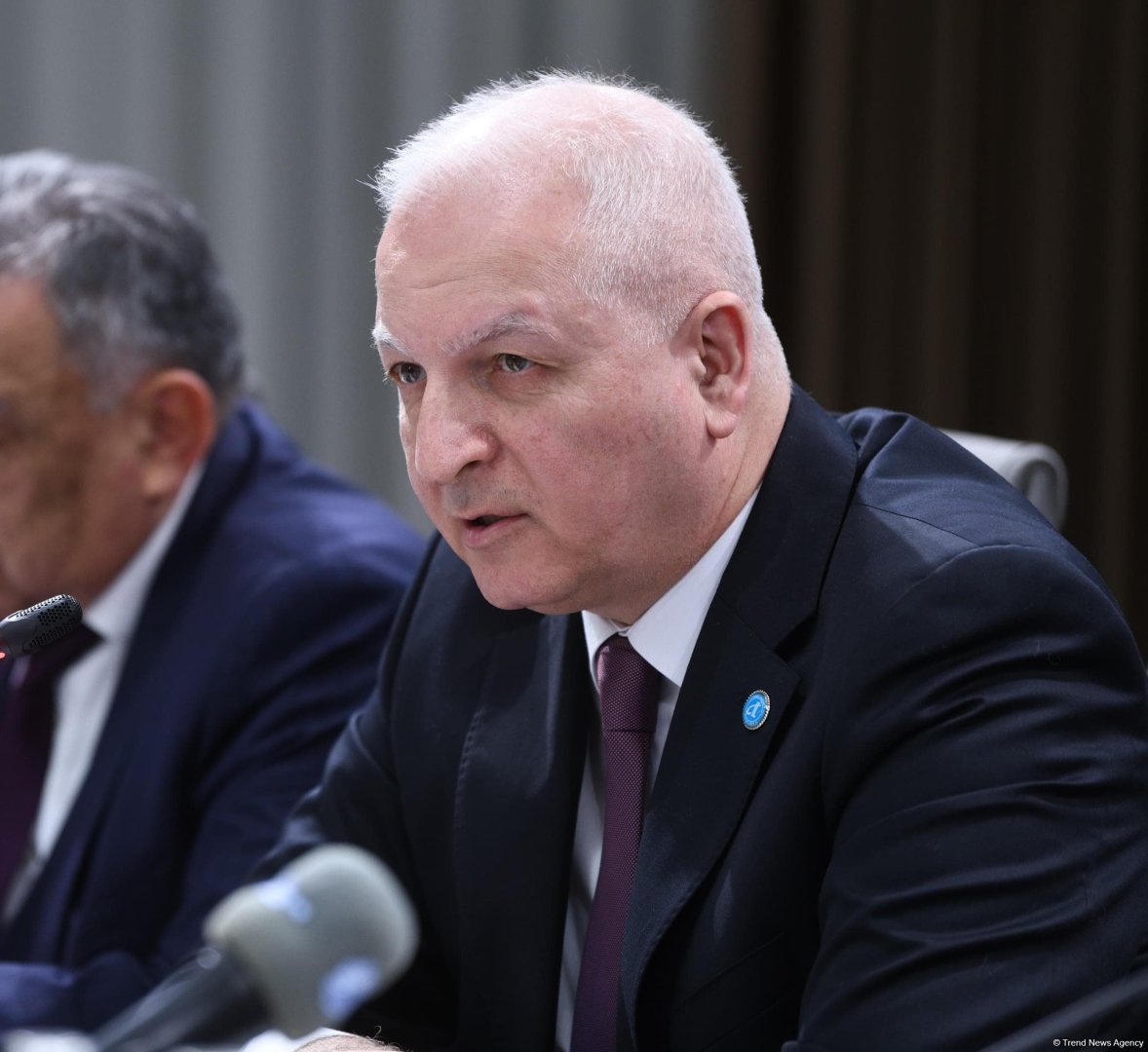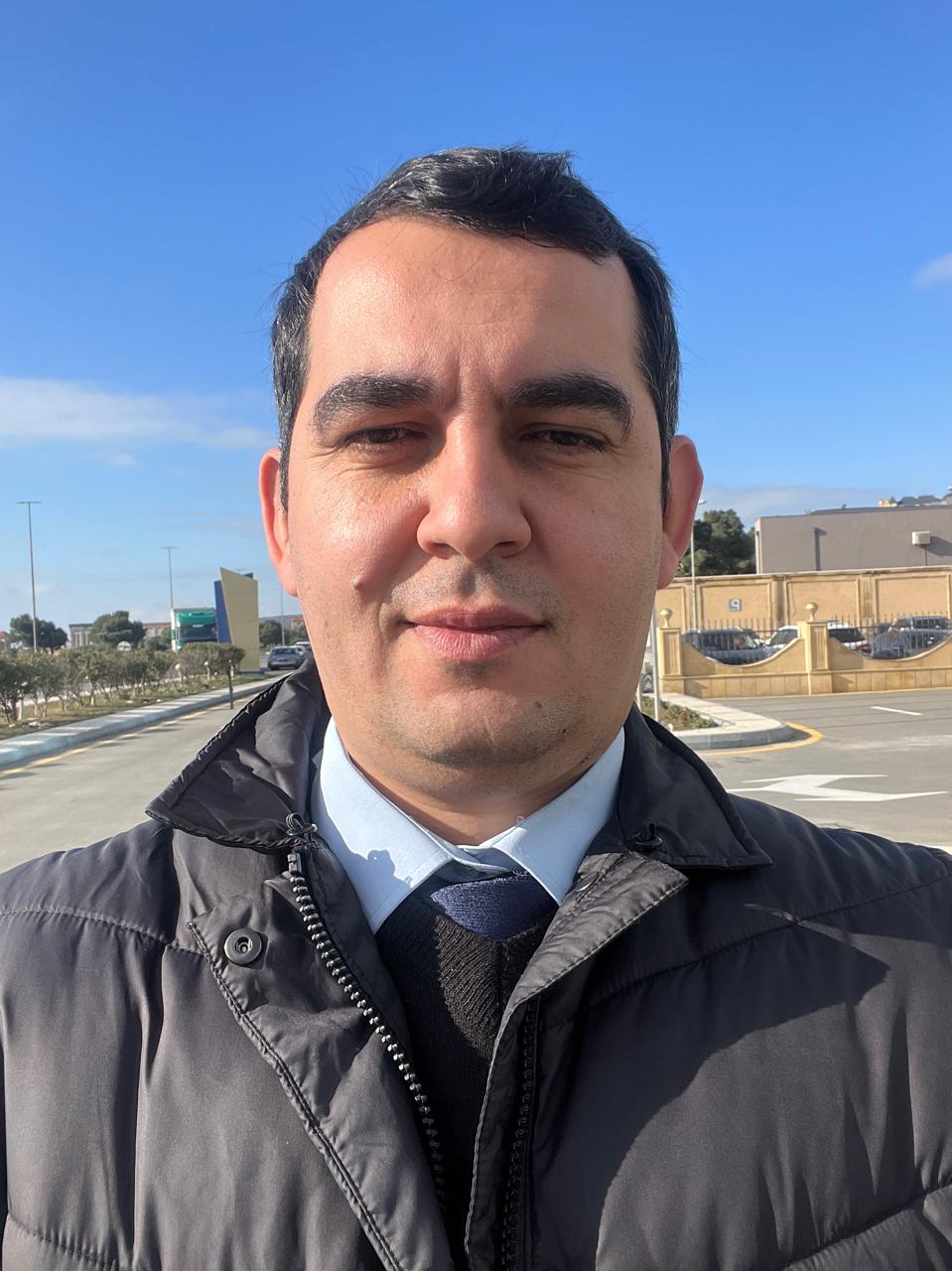BAKU, Azerbaijan, April 21. The Turkic Academy is currently carrying out nearly 40 large and medium-sized international projects that span the shared history, culture, and languages of Turkic peoples, said the president of the Turkic Academy, academician Shahin Mustafayev, Trend reports.
In his address at an event summarizing the sociological research project titled "Turkic Barometer 2024: Current Approaches to Education and Scientific Cooperation in Turkic States," Mustafayev made remarks on the academy's functions.
"Along with these projects, the Turkic Academy also places significant emphasis on studying the practical issues raised by the heads of Turkic states during high-level meetings, which are critical for the Turkic world.
For example, key topics highlighted by Azerbaijani President Ilham Aliyev include water issues in Azerbaijan and other Turkic countries, food security, and similar pressing matters. The Academy prepares annual regional reports on these topics, presenting them to the heads of states and relevant governmental bodies," he noted.
One of the academy's major initiatives is the "Turkic Barometer"—a sociological study similar to the European Union’s "Eurobarometer" and the "Balkanbarometer." The project's aim is to gauge public opinion within the Turkic world on issues such as integration, national identity, social solidarity, environmental awareness, and trust.
The study conducted by the Turkic Academy last year, "Turkic Barometer 2023," focused on understanding how the Turkic world views the process of closer collaboration and cooperation among various Turkic societies.
The research for "Turkic Barometer 2024" involved Azerbaijan, Kazakhstan, Kyrgyzstan, Uzbekistan, and Turkey, with participation from leading scientific institutions, including the Social Research Center in Azerbaijan. A total of 4,131 educators and 156 university rectors and experts participated in the survey.
"The data gathered has allowed us to formulate proposals to strengthen educational and scientific cooperation between Turkic countries. Key findings from the research highlight the need to develop joint educational programs, expand faculty and student exchanges, and implement collaborative scientific projects.
The research's results provide a comprehensive overview of the educational and scientific cooperation between Turkic states over the years," he added.
The academician also mentioned that the findings of the study, both overall and by country, will be presented by members of the international research group during their speeches.
"I would like to highlight several key points emphasized in the study. The main findings stress the need for a unified educational and scientific policy among the Turkic states to strengthen their position both regionally and globally. In this context, one of the most significant conclusions is the respondents' opinion on the urgency of accelerating specific forms of cooperation, such as developing joint educational programs across Turkic universities, establishing exchange programs for faculty and students, and launching collaborative scientific research projects.
The study also reveals varying priorities among the Turkic states in potential areas for educational and scientific collaboration.
For instance, a substantial portion of respondents from Azerbaijan emphasized the importance of cooperation not only in pedagogy and medical sciences but also in areas such as the Turkic language and culture, shared history, and literature.
Meanwhile, participants from Kazakhstan suggested focusing on greater cooperation in tourism education.
Respondents from Kyrgyzstan highlighted the significance of joint research on history and culture in education, expressing their belief that such collaboration would foster stronger cultural unity.
Additionally, to further accelerate cooperation in education and science, respondents recommended improving the procedures for mutual recognition and equivalence of higher education diplomas and academic titles. This, they argue, could be a crucial step in advancing cooperation," Mustafayev said.
Mustafayev also pointed to the "Orkhun Exchange Program," noting that despite its potential, the level of awareness about the program remains alarmingly low. He revealed that 44.69 percent of respondents were unaware of its existence, with only 9.49 percent in Azerbaijan and 1.87 percent in Turkey reporting participation. This indicates the need for intensified informational and awareness efforts in this regard.
He concluded that the results of the "Turkic Barometer 2024" study provide an objective picture of the current state of scientific and educational cooperation between Turkic states and can serve as a solid foundation for further integration.
Stay up-to-date with more news on Trend News Agency's WhatsApp channel







